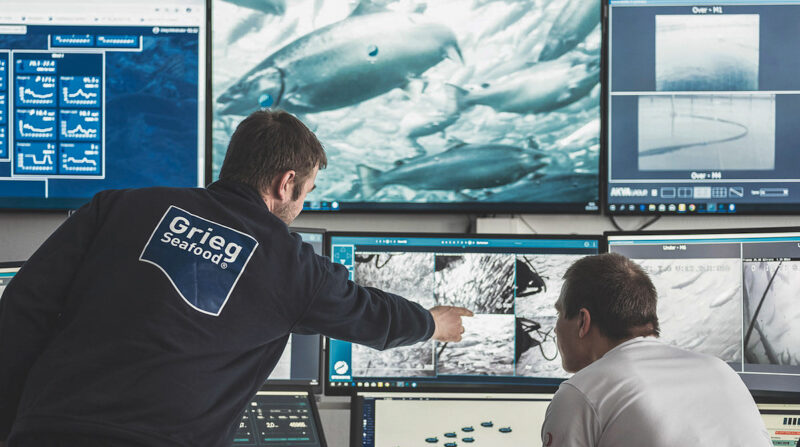Canada slows as world grows with marine aquaculture
After proclaiming aquaculture is key to its post-pandemic economic recovery plans, Canada lags behind the rest of the world, as nations harness the Blue Economy by farming the oceans
By Fabian Dawson
SeaWestNews
From China to India, Europe, Australia and Africa and across the border in the United States, marine aquaculture is growing at a rapid pace as nations take strident steps towards harnessing the Blue Economy for increased food security and jobs in the post-pandemic era.
Not so in Canada, which keeps bowing to the science deficit rhetoric of anti-fish farm activists, after proclaiming that aquaculture, in particular salmon farming, is key to its ocean-based economic growth opportunities.
“The potential of a modern aquaculture to grow and feed the world is extraordinary,” said Qu Dongyu, Director-General of the Food and Agriculture Organization of the United Nations (FAO).
According to a recent research report by Facts & Factors (FnF) the global aquaculture market is anticipated to reach over USD 52.4 billion by 2026.
“There are perhaps no other sectors in Canada that have the capacity to simultaneously drive good-paying job creation, provide domestic food security, support meaningful indigenous reconciliation and realize sustainable food production, as the seafood farming sector can,” said Timothy Kennedy, President & CEO of the Canadian Aquaculture Industry Alliance (CAIA).
But Canada is going in the opposite direction, preferring to acknowledge the ‘big lie’ perpetuated by anti-fish farming activists, rather than the science that unequivocally shows that wild and farmed fish can be the future of the nation’s Blue Economy.
This can be evidenced by the recent decision by Fisheries Minister Bernadette Jordan to phase out salmon farms in BC’s Discovery Islands which will close more than 24% of the west coast’s farmed salmon production, resulting in the loss of more than 1,500 jobs across BC and requiring the destruction of more than 10 million fish.
The decision has also forced BC salmon farming companies to rethink future investment plans amounting to $1.4 billion that would create almost 10,000 new jobs and add a cumulative $44 billion in new economic activity to propel Canada’s Blue Economy.
In an open letter to Prime Minister Justin Trudeau this week, Kennedy from CAIA outlines the key role that aquaculture can play in Canada’s post-COVID jobs recovery.
Here is an excerpt;
“Canada’s farmed seafood sector is young and has been recognized by economic experts, including under your own Economic Tables, led by Dominic Barton, as having tremendous potential for sustainable growth.
Global demand for our products is very strong, and our sustainable growth opportunity is almost limitless. Canadian aquaculture can make an important contribution to Canada’s efforts to “build back better” as part of our national COVID-19 recovery strategy.
And yet our biggest challenge is that the Canadian government has not championed or embraced this opportunity, instead leaving the sector in a morass of confusing departmental accountabilities and regulatory complexity. As a result, since 2002 production in Canada’s aquaculture has stagnated, with an average annual growth rate of about 1% from 2002 to 2019. Other nations, recognizing the opportunity, have moved quickly ahead. Over the same time period our share of world aquaculture production has fallen by 54%.
In 2019, aquaculture generated $5.2 billion in total economic activity across the Canadian economy, $2.1 billion in GDP, and over 21,300 full-time jobs for Canadians. Already over 250 Indigenous communities across Canada (AFN data) are engaged in aquaculture development and many other communities have the bio-physical capacity and interest to support farmed seafood development. The potential for future growth in the sector is strong, as noted in numerous reports produced under your government:
Recent studies have shown that the farm-raised salmon sector is poised to deliver on the promise of significant growth, with plans to invest more than $1.4 billion in BC over the next 30 years to increase production by 85,000 tonnes (95%), and more than $800 million in Atlantic Canada, which would grow production in that region by some by 65,000 tonnes (128%). These investments would eventually generate an additional $4.9 billion in economic output per year, $1.86 billion in additional GDP per year, and more than 19,800 new jobs, mainly in rural and remote coastal communities across Canada.
Unfortunately, Minister Jordan’s recent decision on the Discovery Islands will close more than 24% of BC’s farmed salmon production, resulting in the loss of more than 1,500 jobs across BC and requiring the destruction of more than 10 million fish. The decision has also forced BC salmon farming companies to put future investment plans on hold.
Despite this major setback, we believe your government still has the opportunity to get back on track and support smart development of our sector as a key part of Canada’s COVID recovery strategy. We ask you to identify a champion department, and for this department to develop a plan for the sustainable growth of the sector.
We ask for your government’s support in enabling our sector to help Canada build back better.”
(image courtesy of Grieg Seafood)

